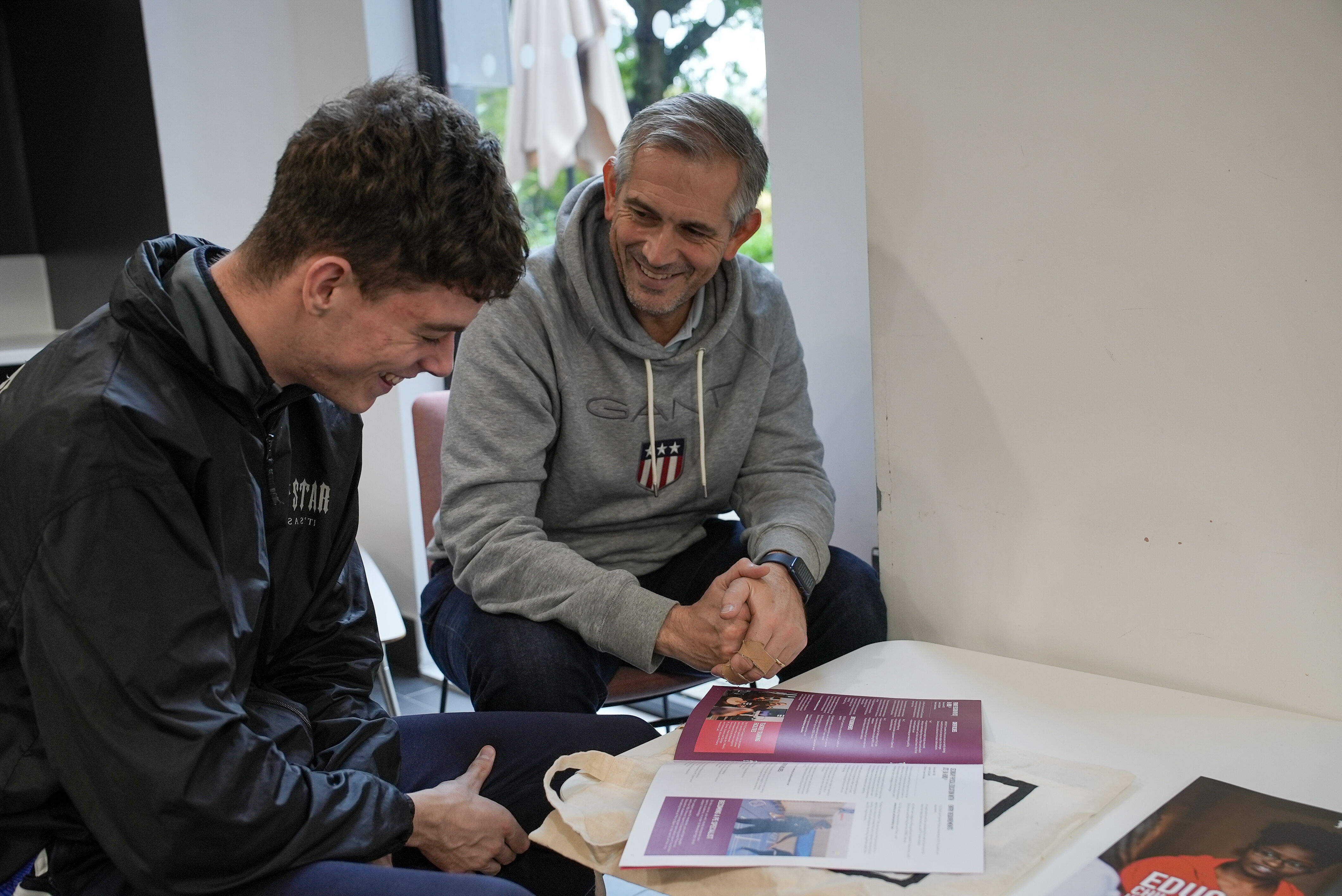The festive break is usually all about great food, copious naps, and feel-good movies. But if you’ve got children in sixth form, there’s something big looming on the horizon: the UCAS deadline.
While most of us are settling in for a seasonal snooze, your child might be facing writer’s block, stress, or plain old procrastination when it comes to their personal statement. If you're trying to get them motivated without becoming that parent, we've pulled together some tried-and-tested tips (with a few fun twists) to help get things moving.
1. Limit distractions
The internet is often the biggest culprit for procrastination. Instead cuasing arguments and changing the Wi-Fi password, suggest a daily “focus hour” where everyone puts away screens - parents included. It shows solidarity and makes your child feel supported, not punished. Add snacks and lo-fi beats to stay productive.
2. Be their editor
If your teen’s getting discouraged by all the red squiggles in Word, offer to read their draft, not to police it, but to encourage and refine. Highlight what they’ve done well before gently correcting mistakes. Not a grammar whiz yourself? Try using tools like Grammarly or Google Docs' suggestions together. Turn it into a low-pressure, collaborative session.
Download your free personal statement guide
Give your child a helping hand with their university application.
3. Reward their milestones
If your child has Christmas money or gift cards burning a hole in their pocket, use that to your advantage. Rather than one big reward at the end, break their statement process into small steps, such as brainstorming, outlining, first draft. Then celebrate each milestone with a hot chocolate, a break to scroll through the sales, or a cosy film night. It keeps motivation high without feeling overwhelming.
4. Take a step back
The hardest thing about writing a personal statement is talking about yourself and your achievements. For a lot of students, their personal statement is the first time they have to try to sell themselves, and it’s nigh on impossible to write about this without cringing and feeling big-headed. Take the chance to help your kids step back from it all and identify what they want to focus on, and their proudest moments to date. It’s a good opportunity to inject some self-confidence, too.
5. New Year, new opportunities
Why not reframe January as a fresh start to chase exciting opportunities? Writing a strong personal statement is one step closer to their future. Acknowledge the significance of this moment and encourage them to own it. You could even spend an hour together vision-boarding their goals university and beyond.
6. Try voice notes
If your teen struggles with writing, suggest they record themselves talking about why they love their subject or what they’ve done to prepare. Speaking feels more natural than writing for many people, and it’s a fantastic way to generate ideas they can later shape into a solid draft.
7. Get a fresh perspective
Encourage your child to ask someone they trust, such as a teacher, mentor, or friend, to review their draft. It can be a big confidence boost to hear that someone else finds their story impressive, and a second opinion often makes the editing process easier.
8. Set gentle deadlines
The UCAS deadline may be fixed, but setting mini deadlines, like “first question done by Friday", helps avoid last-minute panic. Add a small reward or treat when they meet each goal to make progress feel satisfying.
Bonus: Download Your Free Personal Statement Guide
It's full of great tips and subject-specific examples to inspire your young person.




